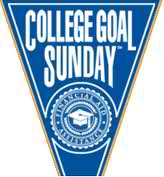What Role Does Diversity Play in Admission Decisions?
Posted on Mon, 02/06/2012 - 23:31 As we speak at high schools across the country, we are often asked by students and parents about the role that diversity plays in college admission. As it happens, we are also in the midst of renewed attention to affirmative action, including whether students from some races are actually penalized in the admission process. Jarrid Whitney, Executive Director of Admissions and Financial Aid at California Institute of Technology, joins us today to guest blog about the role diversity plays in the admission process in his experience:
As we speak at high schools across the country, we are often asked by students and parents about the role that diversity plays in college admission. As it happens, we are also in the midst of renewed attention to affirmative action, including whether students from some races are actually penalized in the admission process. Jarrid Whitney, Executive Director of Admissions and Financial Aid at California Institute of Technology, joins us today to guest blog about the role diversity plays in the admission process in his experience:
Admission Committee Scenario:













